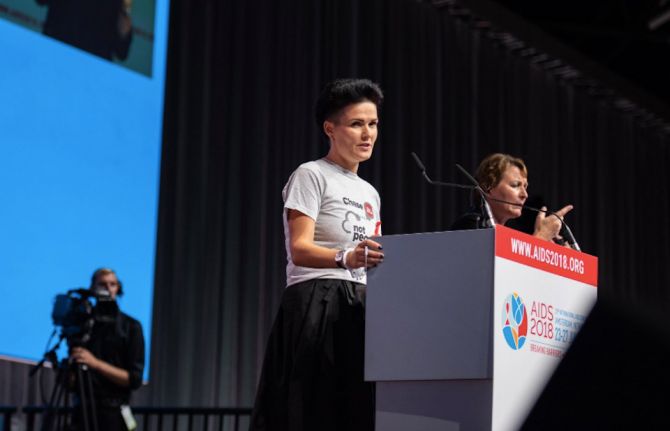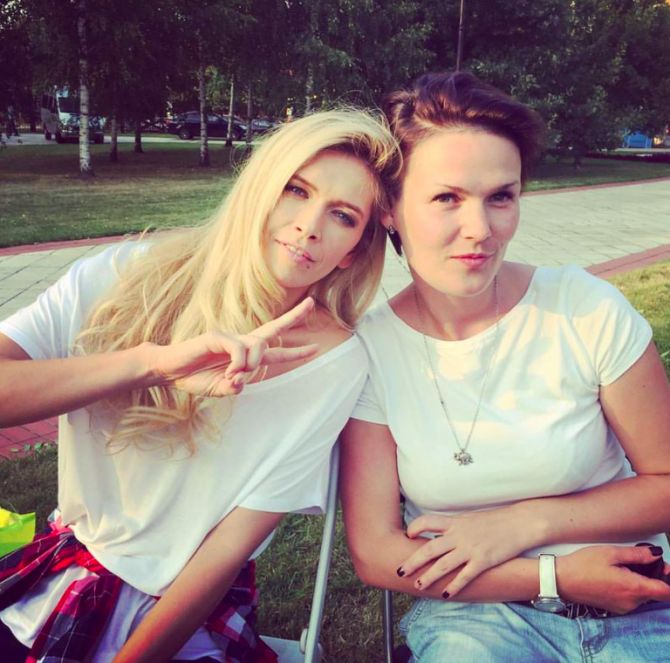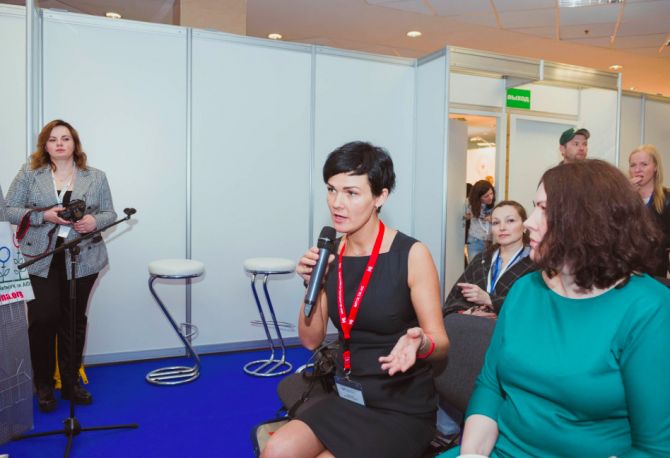



Feature Story
Defending the rights of people living with HIV at community level in the Russian Federation
27 July 2018
27 July 2018 27 July 2018Maria Godlevskaya, a courageous community activist living with HIV from the Eastern Europe and Central Asia region, was the only Russian language speaker at the opening of the 22nd International AIDS Conference, AIDS2018.
"We all deserve high-quality treatment, regardless of sexual orientation, beliefs and religious preferences. We all deserve a quality life with HIV and without it. For many people, stigma and discrimination remain the main barriers to access support to preserve their health and the health of their loved ones." said Maria Godlevskaya in her opening remarks at AIDS2018. "I believe in the community. As an indestructible link in the chain of resistance, I have defended, defend and will defend the rights of people living with HIV to have full quality of life and a high standard of living. I encourage everyone to support our campaign "Chase the virus, not people!" #chasethevirusnotpeople
Maria has been living with HIV for over 18 years. She openly speaks about her HIV status on television and openly shares her personal story with journalists. Maria leads a team of peer counselors and runs a video blog at E.V.A. - the first Russian network to support women affected by HIV. She shares her personal experience and disseminates the latest HIV news and information with people affected by the epidemic across Russia every day.
"Some people call me and others reach out to me via social media. I try to respond to every request. I think my life has changed dramatically and now I have found my purpose in life. It is priceless to be able to communicate with people around the world.”
Maria was diagnosed with HIV when she was 16 years old. "When you are 16, there is no panic. You are not frightened by horror stories about AIDS and not bound by social rules, so it was not hard for me to accept my HIV diagnosis. I was more worried about my mother. My diagnosis was like litmus paper - people who were afraid of HIV abandoned me, but the most trusted ones have remained forever.”
Maria has been working for different HIV organizations for many years, starting with providing counselling for people who were using drugs and living with HIV. "At that time there were no well developed communities to support people who use drugs. We helped those in remission to start treatment and stay adherent to treatment."
A few years ago, Maria became pregnant and gave a birth to a healthy baby. "When I met the father of my child, I immediately told him about my "peculiarity” and left him to choose to stay with me. And he gave me a beautiful answer: ‘Every person has something special’ he said. So we stayed together, and he remained HIV negative.”
I stayed on HIV treatment throughout and after my pregnancy, and I was lucky to have a great relationship with my doctor. My pregnancy and birth is now an example for other women living with HIV. Today I get lots of questions from young Russian women about pregnancy, health care, obstetrical care for women with HIV, so I can share with them my positive experience.”
Maria’s organization, E.V.A. implements many projects in Saint Petersburg and across Russia, focused on providing HIV services for women and their families: support groups for women living with HIV and their families; trainings to increase medical literacy among people living with HIV, and help for women to communicate and negotiate with their doctors and care givers.
"Our trainings help women to adhere to treatment, minimize side effects, and manage undesirable consequences. We empower women to enhance their physical condition as they get used to taking ART long-term. We also support peer consellors so they can provide other women with moral and psychological support.”
Maria considers the main challenge of the growing HIV epidemic among women in Russia is that women have received little sexual education, lack a culture of safe and equal sexual relations and experience irregular monitoring of their HIV status. Many women simply do not identify themselves with any key population, and consider that having one regular sexual partner will safeguard their health.
"Now we are seeing so many new HIV infections among women over the age of 50 - which brings new challenges as how to support these women. When a woman in her thirties learns her HIV positive status, she may understand how she acquired it. But women in their fifties or sixties are often shocked to learn they have HIV and they often think that their lives are over. In such cases, peer counsellors are so important because they can answer practical questions from their own personal experience.”
“I have a clear set of goals: I know why I'm doing what I do, and I have the energy and strength. I try to set real goals and don’t try to save the whole world – I’m just supporting those who really need help.”
Region/country
- Eastern Europe and Central Asia
- Albania
- Armenia
- Azerbaijan
- Belarus
- Bosnia and Herzegovina
- Bulgaria
- Croatia
- Cyprus
- Czechia
- Estonia
- Georgia
- Hungary
- Kazakhstan
- Kyrgyzstan
- Latvia
- Lithuania
- Montenegro
- Poland
- Republic of Moldova
- Romania
- Russian Federation
- Serbia
- Slovakia
- Slovenia
- Tajikistan
- North Macedonia
- Türkiye
- Turkmenistan
- Ukraine
- Uzbekistan
Related
 Women, HIV, and war: a triple burden
Women, HIV, and war: a triple burden

12 September 2025
 Displacement and HIV: doubly vulnerable in Ukraine
Displacement and HIV: doubly vulnerable in Ukraine

11 August 2025

